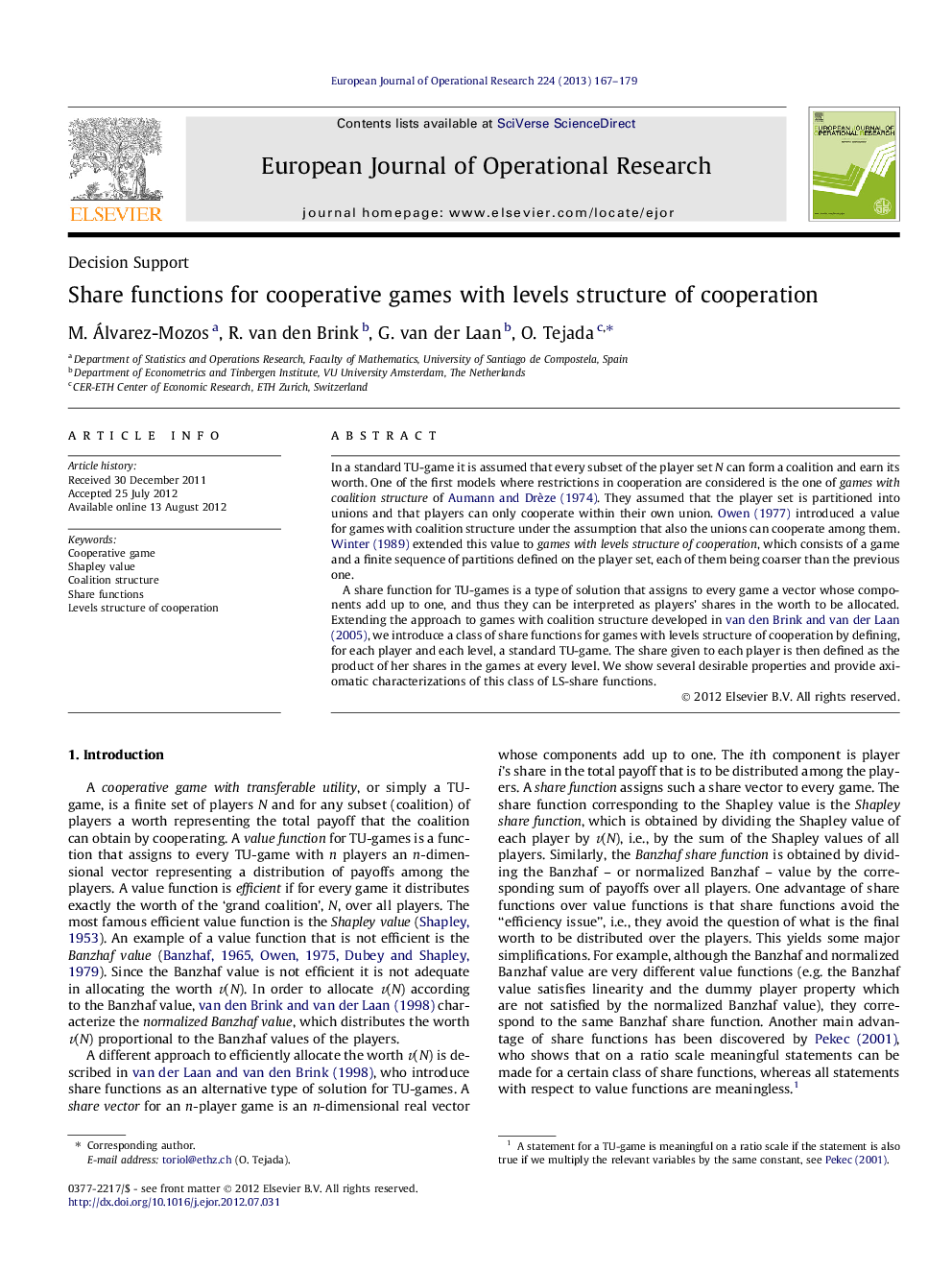| Article ID | Journal | Published Year | Pages | File Type |
|---|---|---|---|---|
| 476817 | European Journal of Operational Research | 2013 | 13 Pages |
In a standard TU-game it is assumed that every subset of the player set N can form a coalition and earn its worth. One of the first models where restrictions in cooperation are considered is the one of games with coalition structure of Aumann and Drèze (1974). They assumed that the player set is partitioned into unions and that players can only cooperate within their own union. Owen (1977) introduced a value for games with coalition structure under the assumption that also the unions can cooperate among them. Winter (1989) extended this value to games with levels structure of cooperation, which consists of a game and a finite sequence of partitions defined on the player set, each of them being coarser than the previous one.A share function for TU-games is a type of solution that assigns to every game a vector whose components add up to one, and thus they can be interpreted as players’ shares in the worth to be allocated. Extending the approach to games with coalition structure developed in van den Brink and van der Laan (2005), we introduce a class of share functions for games with levels structure of cooperation by defining, for each player and each level, a standard TU-game. The share given to each player is then defined as the product of her shares in the games at every level. We show several desirable properties and provide axiomatic characterizations of this class of LS-share functions.
► We introduce a class of share functions for games with levels structure of cooperation. ► Our class is parametrized by real valued functions on the set of games. ► We provide three axiomatic characterizations for these share functions. ► We show that the share function derived from Winter’s value lies within our class.
